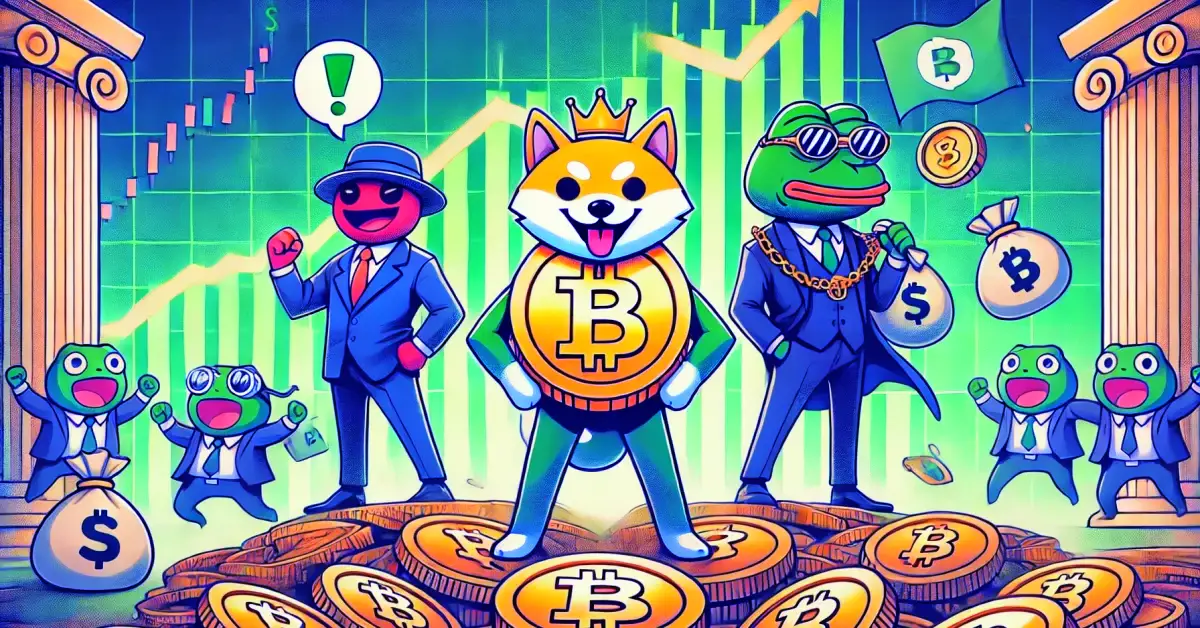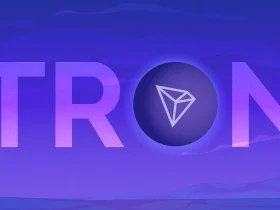What Is TON?
TON, short for The Open Network, is a decentralized blockchain platform initially developed by the creators of Telegram. It addresses the limitations of existing blockchains, focusing on enhanced scalability, faster transaction speeds, and improved user experience. TON’s innovative architecture enables seamless integration with decentralized applications and services, making it a robust solution for the future of blockchain technology.
History of TON
Who Created toncoin?
TON’s development began in 2018, spearheaded by Telegram’s founder, Pavel Durov, and his brother, Nikolai Durov. The initial goal was to integrate a blockchain-based cryptocurrency called Gram into the Telegram ecosystem, enabling users to conduct transactions and use decentralized applications (DApps) directly within the messaging app.
Despite early excitement and a successful fundraising effort, Telegram had to step back from the project in 2020 due to legal challenges from the U.S. Securities and Exchange Commission (SEC).
The project was later brought back to life by the open-source community and rebranded as The Open Network (TON). Today, it is maintained and developed by a community of dedicated developers and enthusiasts.
How Does TON Work?
The TON blockchain operates on a proof-of-stake consensus algorithm, where validators, chosen based on the TON tokens they stake, are responsible for verifying transactions and generating new blocks. This system is energy-efficient and capable of handling a high volume of transactions. Additionally, TON features a multi-chain architecture, with a master chain managing key ecosystem data and multiple independent work chains designed for various specialized functions.
Consensus mechanism
TON operates on a Proof of Stake consensus mechanism, where validators are chosen based on the amount of TON tokens they hold and stake as collateral. These validators are tasked with verifying transactions and adding them to the blockchain. In return for their efforts, they receive rewards in the form of TON tokens.
Multi-chain architecture
TON employs a multi-chain structure, with the TON blockchain serving as the main chain and smaller chains known as work chains. The master chain oversees crucial ecosystem information, including protocol updates, blockchain verifications, and chain coordination. These work chains are versatile, operating independently and tailored for specific tasks.
Key features of TON
1. Scalability
TON is built for high scalability and can process millions of transactions per second. This is achieved through a sharding mechanism, where the network divides into smaller, interconnected blockchains known as “shards.” Each shard can independently handle transactions, greatly boosting the network’s overall capacity.
2. Interoperability
TON is designed to be compatible with other blockchains and decentralized applications (DApps). It can easily connect with different blockchain networks, enabling the smooth transfer of assets and data between them. This capability is essential for building a connected, decentralized web where various blockchain networks can collaborate effectively.
3. Fast transactions
TON’s architecture is built for speed, utilizing a Proof of Stake (PoS) consensus mechanism that is quicker and more energy-efficient than the Proof of Work (PoW) system used by Bitcoin. As a result, transactions on the TON network are processed almost instantly, making it ideal for everyday activities like payments, microtransactions, and other financial operations.
4. Decentralization
TON is a decentralized network, meaning any single entity or organization does not control it. Instead, it is governed by its community of users and developers. This decentralization makes TON more resistant to attacks and ensures the network remains open and accessible.
Use Cases of TON
TON is designed with a compatible structure that enables users to develop various services and DApps. Since it’s a community-driven project, more and more services are being developed within the TON ecosystem. Examples include crypto wallets, payment services, blockchain bridges, and decentralized exchanges.
-
Payments and transfers
TON is perfect for fast and secure financial transactions. Its high processing speed ensures that payments and transfers happen quickly, making it great for peer-to-peer transactions and online shopping. Traders can also use TON to add cryptocurrencies to their payment options.
-
Decentralized finance (DeFi)
DeFi applications, like lending platforms and decentralized exchanges, can take advantage of TON’s scalability and security. Its capacity to manage a high volume of transactions makes it well-suited for handling complex financial services.
-
Content distribution
TON’s architecture allows for the development of decentralized content distribution platforms. These platforms can provide services like video streaming and file sharing, ensuring content is delivered both quickly and securely.
-
Gaming
The gaming industry can use TON’s fast transactions and smart contract features to build decentralized games and in-game economies, creating new opportunities for both game developers and players.
-
Social media and messaging
TON’s integration with Telegram enables the creation of decentralized social media and messaging apps. Users can benefit from increased security while accessing various integrated mini-apps and services.
What are the benefits of using TON?
Toncoin is built to make using cryptocurrency easy and efficient. It offers fast transactions, low fees, and supports various applications, from gaming to financial services. With its ability to handle millions of transactions per second and seamless integration with Telegram for in-app payments, Toncoin is a versatile tool in the TON ecosystem. It also ensures security through its Proof-of-Stake system and provides privacy with pseudonymous transactions, making it a strong choice for many uses in the decentralized space.
Fast Transactions
TON is designed for high-speed transactions, making it ideal for everyday use, such as payments and microtransactions. The network’s architecture ensures that transactions are processed almost instantly, providing a seamless user experience.
Low Fees
TON operates with minimal transaction fees, making it cost-effective for users to send and receive payments. This is especially beneficial for frequent transactions and micro-payments, where high fees could otherwise become burdensome.
Scalability
The TON blockchain is built to scale efficiently, handling millions of transactions per second through its sharding technology. This ensures that the network can grow and accommodate many users and applications without compromising speed or performance.
Versatile Applications
TON supports a wide range of applications beyond financial transactions. These include gaming, decentralized finance (DeFi), and content distribution. The network’s versatility allows developers to build various decentralized applications (DApps) within the ecosystem.
Security
TON uses a Proof-of-Stake (PoS) consensus mechanism, which is more energy-efficient and secure than traditional Proof-of-Work (PoW) systems. The network’s decentralized nature further enhances its security, reducing the risk of attacks.
Integration with Telegram
TON is closely integrated with Telegram, one of the world’s largest messaging platforms. This integration allows for seamless use of Toncoin within Telegram, including in-app payments and decentralized applications directly within the messaging app.
Privacy
While not fully anonymous, TON offers privacy through pseudonymous transactions, where your identity is not directly linked to your wallet address. This provides a layer of privacy while maintaining transparency on the public blockchain.
What is TON foundation?
The TON Foundation is a non-profit organization that oversees the development and growth of The Open Network (TON) blockchain. The foundation guides the project’s direction, ensuring the network’s infrastructure, governance, and community initiatives align with TON’s decentralization, scalability, and user-friendliness goals.
The TON Foundation coordinates efforts among developers, validators, and community members and provides resources and support for projects built on the TON blockchain. Additionally, the foundation manages initiatives like developer grants, educational programs, and partnerships to foster innovation within the TON ecosystem. By maintaining a neutral and supportive role, the TON Foundation ensures the long-term sustainability and success of the network while promoting its core values of transparency and decentralization.
What is TON Currency?
Toncoin (TON)
Toncoin is the primary cryptocurrency powering the TON ecosystem. It’s used for gas payments, processing fees, and storage-related costs. Additionally, Toncoin is required to become a blockchain validator.
TON has a total supply of 5.11 billion tokens, with 2.5 billion in circulation. In August 2024, Toncoin (TON) was listed on Binance with the Seed Tag applied.
What is the maximum supply of Toncoin?
TON has a current circulating supply of 2.52 billion coins, with a maximum supply capped at 5.11 billion TON.
Which TON wallet is best?
Best TON Wallets of 2024
Choosing the right wallet is essential for securely managing your Toncoin (TON) in the TON ecosystem. This table provides:
- A quick overview of some of the most popular TON wallets.
- Highlighting their features.
- User bases.
- The pros and cons of each.
Whether you’re new to TON or a seasoned user, this summary will help you find the wallet that best suits your needs.
What is the future of Toncoin?
The future of Toncoin (TON) appears promising, driven by its strong technological foundation and growing adoption. If the current bullish trend continues, Toncoin’s price could reach $10 by the end of 2024, with the potential to climb to $15-$20 by the following year. As a key player in the TON ecosystem, Toncoin is poised to benefit from the platform’s focus on scalability, speed, and decentralization.
Conclusion
The Open Network (TON) represents a significant advancement in blockchain technology, offering a scalable, fast, decentralized platform with a wide range of applications. From financial transactions to decentralized content distribution, TON’s innovative architecture and community-driven development make it a powerful solution for the evolving digital landscape. With Toncoin as its native currency, the TON ecosystem is well-equipped to support various decentralized applications and services, positioning itself as a key player in the future of blockchain and decentralized finance.
FAQs
How much is 1 TON coin?
As of August 23, 2024, 1 Toncoin (TON) is approximately $6.54 to $6.70, depending on the exchange. This price reflects Toncoin’s standing as a significant player in the cryptocurrency market, currently ranking as the 8th largest cryptocurrency by market capitalization. The price has fluctuated, with a recent surge indicating strong demand and growing confidence in the TON project. You can see the details here.
Is TON on Binance?
Yes, Toncoin (TON) is listed on Binance. You can buy, sell, and trade TON on the Binance platform, making it accessible globally to a wide range of users.
What is the purpose of TON coin?
The primary purpose of Toncoin (TON) is to serve as the native cryptocurrency within The Open Network (TON) ecosystem, facilitating various functions essential to the network’s operations. Toncoin is used to pay transaction fees, secure the network through staking in the Proof-of-Stake (PoS) consensus mechanism, and participate in decentralized applications (DApps) on the TON blockchain.
Additionally, Toncoin is crucial in other ecosystem services, such as paying for decentralized data storage, participating in governance, and supporting the TON DNS and TON Proxy services. By enabling these diverse functions, Toncoin supports creating a scalable, decentralized, and user-friendly blockchain platform.
Is TON a coin or a token?
TON is considered a coin rather than a token. The distinction lies in that Toncoin operates on its blockchain, The Open Network (TON), rather than being built on another existing blockchain like Ethereum, which is typically where tokens reside. Coins like TON have their native blockchain and are used to pay for transactions, Staking, and other activities within that specific blockchain ecosystem.
How to convert TON to USD?
To convert Toncoin (TON) to USD, follow these steps:
- Choose a Cryptocurrency Exchange: Find a reputable exchange that supports TON to USD trading pairs. Examples include Binance, KuCoin, or Gate.io. Ensure you have an account on the exchange.
- Deposit Toncoin: If you already have Toncoin in a wallet, transfer it to your exchange account. Go to the “Deposit” section of the exchange, select Toncoin, and follow the instructions to send your TON to the provided address.
- Trade TON for USD: Once your Toncoin is in your exchange account, go to the trading section. Look for the TON/USD trading pair. Enter the amount of TON you wish to sell and execute the trade.
- Withdraw USD: After converting your TON to USD, you can withdraw the funds to your bank account or use them within the exchange. Go to the “Withdraw” section, select USD, and follow the instructions to transfer the money to your bank.
Make sure to check for any fees associated with the conversion and withdrawal processes on the exchange you’re using.
Is Toncoin anonymous?
Toncoin (TON) is considered pseudonymous rather than completely anonymous. It offers privacy through pseudonymous transactions, meaning that while your identity isn’t directly linked to your wallet address, all transactions are recorded on the public blockchain ledger. This allows for transparency and traceability of transactions. However, TON does not provide full anonymity like privacy-focused cryptocurrencies (e.g., Monero or Zcash). While your identity isn’t explicitly revealed, sophisticated analysis can trace transactions back to individuals.
Disclaimer: This article is intended for educational use only. The information qpcrypto shares is not meant to be investment or trading advice. Qpcrypto is not responsible for any decisions you make regarding your investments. It’s important to consult with a professional before taking any financial risks.






Leave a Reply